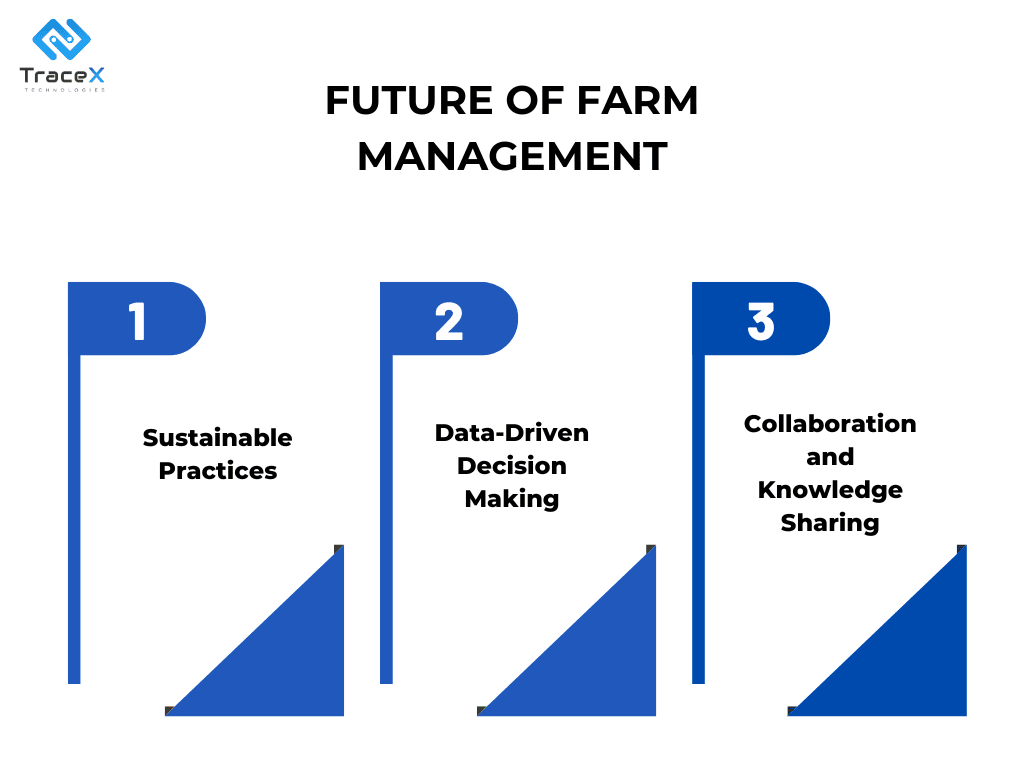Contact: +91 99725 24322 |
Menu
Menu
Quick summary: Explore the comprehensive scope of farm management, including goals, best practices, and the role of technology. Discover how innovative solutions like the TraceX Farm Management Platform can enhance productivity and sustainability in agriculture.

Farming is more than just planting seeds and waiting for crops to grow. It’s a complex world where every decision counts! Imagine having to juggle weather forecasts, pest control, labor management, and market prices—all at the same time. By understanding the scope of farm management, farmers can take control of their operations, make informed decisions, and ultimately improve their productivity.
For many farmers, this can feel overwhelming. They often struggle to keep everything organized and efficient, leading to lost profits and wasted resources. This is where farm management comes into play. Whether you’re a seasoned farmer or just starting out, grasping the fundamentals of farm management can help turn your farming dreams into reality.
Key Takeaways
At its core, farm management is the process of planning, organizing, directing, and controlling the activities of a farm. This includes everything from crop selection to labor management, resource allocation, and financial planning. The goal is to ensure that the farm operates efficiently, sustainably, and profitably.
Effective farm management helps farmers make informed decisions, optimize resource use, and increase profitability. It also plays a crucial role in sustainability, allowing farms to produce food while minimizing environmental impact. Here are some reasons why farm management is vital:
The scope of farm management can be divided into several key components, each playing a crucial role in the overall success of a farming operation.
Planning is the foundation of effective farm management. It involves setting goals, developing strategies, and outlining the steps necessary to achieve those goals. Here are some aspects of planning in farm management:
Healthy soil is the backbone of successful farming. Soil management involves practices that maintain or improve soil health, such as:
Crop management encompasses all the practices involved in growing crops, including:
People are a vital resource on any farm. Effective labor management includes:
Understanding the financial aspects of farming is essential for long-term success. Key elements include:
In today’s digital age, technology solutions like farm management software play a pivotal role in farm management. Here’s how technology is changing the landscape:
Farm management encompasses a wide range of activities aimed at optimizing agricultural production while ensuring sustainability. The primary goals of farm management are to increase productivity, enhance profitability, and promote the efficient use of resources. To achieve these goals, farmers must set clear objectives, such as improving crop yields, managing costs, and ensuring environmental stewardship. Best practices in farm management include adopting precision agriculture techniques, implementing effective crop rotation strategies, and utilizing data analytics for informed decision-making. Additionally, fostering strong relationships with suppliers and consumers can enhance market access and ensure that farmers can respond quickly to changing demands. By embracing these goals, objectives, and best practices, farmers can create a resilient and successful farming operation that thrives in an ever-evolving agricultural landscape.

When we talk about the scope of farm management, we’re essentially discussing the comprehensive strategies, goals, and practices that help farmers optimize their operations. It’s about making informed decisions, maximizing productivity, and ensuring sustainability in agriculture. The TraceX Farm Management Platform fits right into this picture, serving as a powerful ally for farmers navigating these complexities.
One of the primary goals of farm management is to streamline operations for better efficiency. The TraceX platform does just that by providing real-time data and insights. Imagine having a digital dashboard that shows you everything happening on your farm—from soil health to crop growth. This visibility helps farmers identify issues early, adjust their strategies quickly, and save precious time and resources.
Effective decision-making is at the heart of successful farm management. With TraceX, farmers gain access to analytics that empower them to make smarter choices. For instance, if a farmer notices a sudden drop in crop health metrics, they can act promptly, whether that means adjusting irrigation levels or altering their fertilization approach. The platform transforms raw data into actionable insights, ensuring that farmers can always make the best choices for their operations.
Sustainability is a key focus in today’s agricultural practices, and the TraceX platform aligns perfectly with this goal. By tracking resource usage—like water and fertilizers—and assessing their environmental impact, farmers can adopt more sustainable practices. This not only helps in conserving resources but also supports global efforts to combat climate change. TraceX makes it easier for farmers to implement eco-friendly practices that are becoming increasingly important in the industry.
In the realm of farm management, traceability is essential for ensuring quality and safety in the food supply chain. The TraceX platform enables farmers to trace their products from the field to the market. This transparency builds trust with consumers and helps farmers meet regulatory requirements. When buyers know the journey of their food, they feel more confident in what they’re purchasing.
Organic India successfully enhanced its agricultural operations by partnering with TraceX. Through TraceX’s solutions, they digitized their farm management processes, allowing for efficient tracking of regenerative practices and streamlined procurement. Additionally, they ensured product traceability and validated quality certifications, ultimately improving overall operational efficiency and sustainability in their farming practices.
Lastly, managing finances is a crucial aspect of farm management. TraceX aids farmers in tracking their expenses and revenues, allowing them to see where they can cut costs or invest more for greater returns. By having all financial data in one place, farmers can make informed financial decisions that directly impact their bottom line.
The scope of farm management is vast and continually evolving. By understanding the key components, farmers can make informed decisions that enhance productivity, sustainability, and profitability. As we move into the future, embracing new technologies and practices will be essential for meeting the challenges of modern agriculture. Whether you’re a small-scale farmer or part of a large agricultural enterprise, effective farm management is the key to success.
Farm management is the process of planning, organizing, directing, and controlling farming activities to ensure efficiency and profitability.
Technology helps farmers optimize resource use, increase productivity, and make data-driven decisions that enhance overall farm performance.
You can implement sustainable practices such as crop rotation, soil management, and using precision agriculture technologies to minimize environmental impact.
